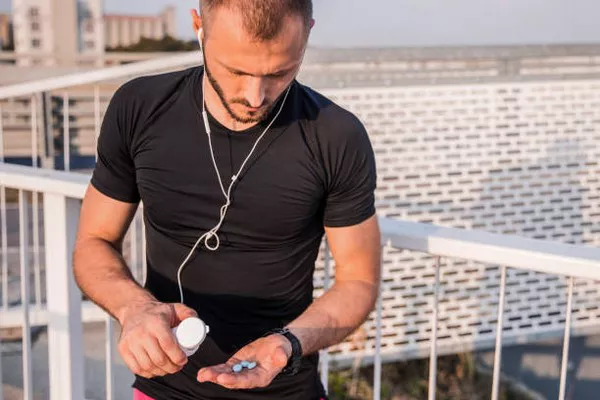When it comes to weight loss, many people seek quick solutions, such as weight loss pills. The question, “What weight loss pills work without exercise?” is commonly searched. However, it’s important to approach this question with a clear understanding of the potential risks and benefits. While some weight loss pills claim to work without the need for exercise, a sustainable and healthy approach to weight loss often includes a combination of balanced nutrition, physical activity, and lifestyle changes. This article will explore the role of weight loss pills, provide feasible fitness and weight loss suggestions, and emphasize the importance of a comprehensive approach.
Understanding Weight Loss Pills
Weight loss pills are dietary supplements designed to help individuals lose weight. They work through various mechanisms, such as reducing appetite, increasing fat burning, or decreasing the absorption of fat or calories. There are two main categories of weight loss pills: prescription medications and over-the-counter supplements. While some weight loss pills may aid in weight loss, they are not a substitute for healthy eating and exercise.
Prescription Weight Loss Pills
Prescription weight loss pills are medications prescribed by healthcare professionals to individuals with specific medical conditions or those who are significantly overweight. These medications are regulated and tested for safety and efficacy. Common prescription weight loss medications include:
Phentermine: Suppresses appetite and is often prescribed for short-term use.
Orlistat: Reduces fat absorption from food.
Liraglutide: Mimics a hormone that regulates appetite.
Over-the-Counter Weight Loss Supplements
Over-the-counter weight loss supplements are available without a prescription. They often contain natural ingredients like herbal extracts, vitamins, and minerals. Some popular over-the-counter weight loss supplements include:
Garcinia Cambogia: Believed to suppress appetite and inhibit fat production.
Green Tea Extract: Increases fat oxidation and boosts metabolism.
Conjugated Linoleic Acid (CLA): Reduces body fat.
The Reality of Weight Loss Pills Without Exercise
While some weight loss pills may show modest results, relying solely on them without incorporating exercise and a healthy diet is not recommended. Weight loss pills may help jumpstart weight loss, but they are not a long-term solution. Exercise and a balanced diet are crucial components of sustainable weight loss and overall health.
See Also: Do Keto Pills Really Help You Lose Weight
Feasible Fitness and Weight Loss Suggestions
1. Balanced Nutrition
A balanced diet is essential for weight loss and overall well-being. Focus on consuming nutrient-dense foods that provide essential vitamins, minerals, and nutrients. Here are some tips for a balanced diet:
Eat a Variety of Foods: Include a mix of fruits, vegetables, lean proteins, whole grains, and healthy fats.
Portion Control: Be mindful of portion sizes to avoid overeating.
Limit Processed Foods: Reduce the intake of foods high in sugar, salt, and unhealthy fats.
Stay Hydrated: Drink plenty of water throughout the day.
2. Regular Physical Activity
Exercise is a key component of weight loss and maintenance. It helps burn calories, improves cardiovascular health, and builds muscle. Aim for at least 150 minutes of moderate-intensity exercise per week, such as:
Cardio Exercises: Walking, jogging, cycling, and swimming.
Strength Training: Weightlifting, resistance bands, and bodyweight exercises.
Flexibility and Balance: Yoga and stretching exercises.
3. Incorporating Exercise into Daily Routine
Incorporating physical activity into daily life can make it easier to stay active. Simple changes like taking the stairs instead of the elevator, walking or biking to work, and doing household chores can add up.
4. Setting Realistic Goals
Setting realistic and achievable goals is crucial for successful weight loss. Start with small, manageable goals and gradually increase the intensity and duration of exercise. Celebrate milestones and progress along the way.
5. Tracking Progress
Keeping track of your progress can help you stay motivated. Use a journal, app, or fitness tracker to monitor your diet, exercise, and weight loss journey. Tracking your progress allows you to make necessary adjustments and stay on track.
6. Mindful Eating
Mindful eating involves paying attention to hunger and fullness cues, savoring each bite, and avoiding distractions while eating. This practice can help prevent overeating and promote healthier eating habits.
7. Getting Adequate Sleep
Sleep plays a vital role in weight management. Aim for 7-9 hours of quality sleep per night. Poor sleep can lead to increased hunger and cravings, making it harder to maintain a healthy diet.
8. Managing Stress
Stress can negatively impact weight loss efforts. Find healthy ways to manage stress, such as meditation, deep breathing exercises, and engaging in hobbies. Reducing stress can improve mental well-being and support weight loss.
9. Seeking Professional Guidance
Consulting a healthcare professional, registered dietitian, or certified fitness trainer can provide personalized guidance and support. They can help you create a customized weight loss plan that suits your needs and goals.
10. Avoiding Fad Diets and Quick Fixes
Fad diets and quick-fix solutions often promise rapid weight loss but can be unsustainable and unhealthy. Instead, focus on making long-term lifestyle changes that promote overall health and well-being.
Conclusion
While the idea of weight loss pills working without exercise may be appealing, a holistic approach that includes balanced nutrition, regular physical activity, and healthy lifestyle habits is essential for sustainable weight loss. Weight loss pills can be a helpful tool when used appropriately, but they should not replace the fundamental components of a healthy lifestyle. By setting realistic goals, tracking progress, and seeking professional guidance, you can achieve lasting weight loss and improve your overall health.


